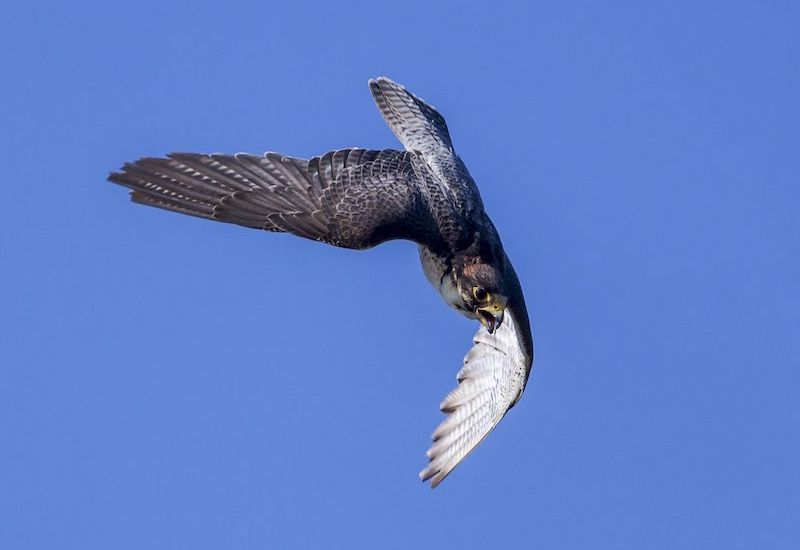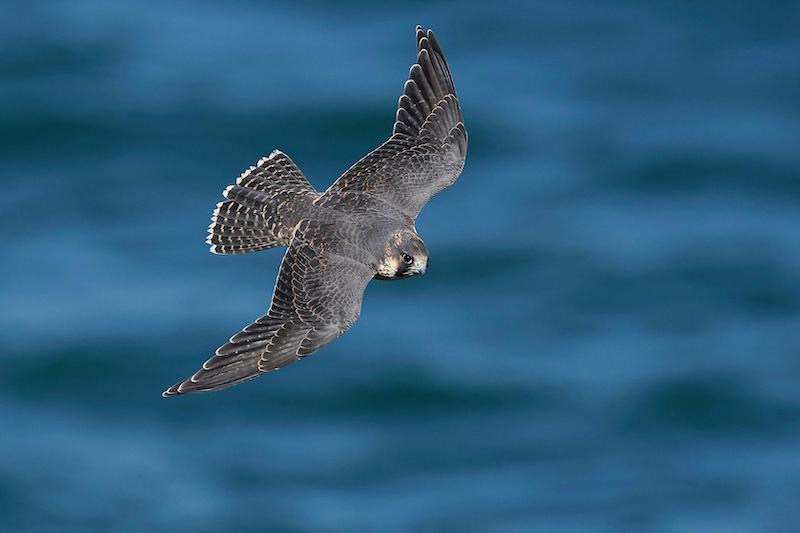

Following the recent deaths of four peregrine falcons due to poisoning, a local animal charity has spoken about the bird of prey's place in the food chain and a possible reason why they are being targeted.
Four falcons have now been killed by pesticides in Guernsey, which has led to an anonymous donor putting up a £5,000 reward for information that will help to convict those responsible.
They all died from ingesting a mixture of professional-use chemicals, one of which has been banned in the EU since 2012.
GSPCA Manager Steve Byrne said that in the last 18 months, 34 birds of prey have ended up at the shelter in need of emergency first aid and vet treatment.
"We have seen a year on year increase in the last decade on those needing our help," he said.
“We have investigated with the States of Guernsey possible shootings of birds of prey but this is the first poisoning cases we are aware of."
Guernsey Tweeps - please share... The quicker we can put a stop to these abhorrent actions the better. https://t.co/R24JgzEeQG
— Lindsay de Sausmarez (@Lindsay_Gsy) July 27, 2020
“Peregrine falcons are truly stunning birds and are best known for their diving speed during flight.
“They can reach more than 300km or 186 miles per hour making them not only the world's fastest bird but also the world's fastest animal.”
The population of peregrine falcons in the Channel Islands has increased in the last year. The National Trust reports that an estimated 1,700 breeding pairs live across the UK, Isle of Man and Channel Islands.
Mr Byrne said a deep dive into the figures indicates that the population density in Guernsey is higher than in the UK.
"They estimated the UK population at 1,400 pairs and possibly around 1500 pairs now," he said.
“With the four peregrine falcons that died due to poisoning and four that we have seen at the GSPCA in the last two years, this equates to eight birds which means we certainly have far more per square mile than you would see in the UK.”
“Although there is no official figure of the numbers of birds in the island, there is unlikely to be more than a small number of pairs due to the landmass we have and habitat which heightens the concern of the death of these incredible birds.”

Pictured: It is believed that peregrines in the British Isles do not migrate, with the majority staying within 100km of their birthplace.
“Their prey includes medium-sized birds, such as wading birds, game birds, pigeons and small ducks which is believed to be why they are often persecuted due to them attacking domestic birds or collections," said Mr Byrne.
“Poisoning of any bird of prey could easily put other birds of prey and scavenging animals at risk and we are working closely with the States to monitor.”
Two recently deceased kestrels and a barn owl have been passed over to the States Vet for post-mortem by the GSPCA to find out their cause of death.
"We will be informing them of all birds of prey that are found and come through our care," added Mr Byrne.
Comments
Comments on this story express the views of the commentator only, not Bailiwick Publishing. We are unable to guarantee the accuracy of any of those comments.